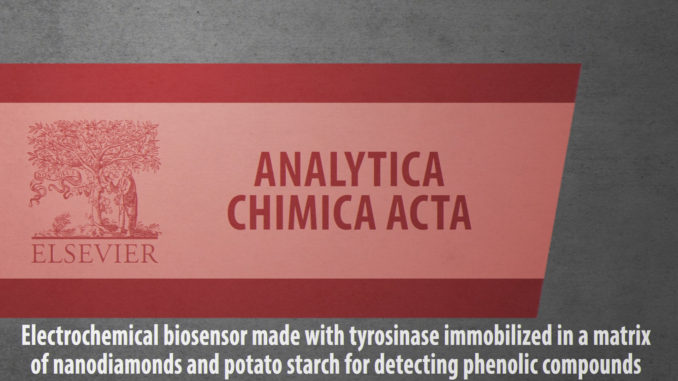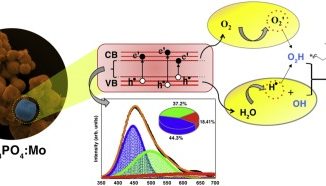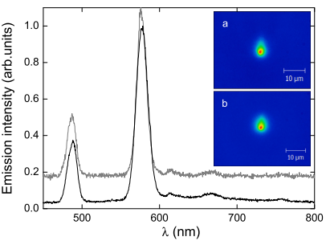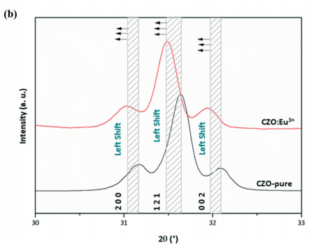
Electrochemical biosensor made with tyrosinase immobilized in a matrix of nanodiamonds and potato starch for detecting phenolic compounds
Abstract: The envisaged ubiquitous sensing and biosensing for varied applications has motivated materials development toward low cost, biocompatible platforms. In this paper, we demonstrate that carbon nanodiamonds (NDs) can be combined with potato starch (PS) and be deposited on a glassy carbon electrode (GCE) in the form of a homogeneous, rough film, with electroanalytical performance tuned by varying the relative ND-PS concentration. As a proof of concept, the ND/PS film served as matrix to immobilize tyrosinase (Tyr) and the resulting Tyr-ND-PS/GCE biosensor was suitable to detect catechol using differential pulse voltammetry with detection limit of 3.9 x 10(-7) mol L-1 in the range between 5.0 x 10(-6) and 7.4 x 10(-4) mol L-1. Catechol could also be detected in river and tap water samples. This high sensitivity, competitive with biosensors made with more sophisticated procedures and materials in the literature, is attributed to the large surface area and conductivity imparted by the small NDs (<5 nm). In addition, the ND-PS matrix may have its use extended to immobilize other enzymes and biomolecules, thus representing a potential biocompatible platform for ubiquitous biosensing. (C) 2018 Elsevier B.V. All rights reserved.
Author(s):Camargo, ER; Baccarin, M; Raymundo-Pereira, PA; Campos, AM; Oliveira, GG; Fatibello, O; Oliveira, ON; Janegitz, BC
ANALYTICA CHIMICA ACTA
Volume: 1034 Pages: 137-143 Published: 5 JUNE 2018
DOI: 10.1016/j.aca.2018.06.001




